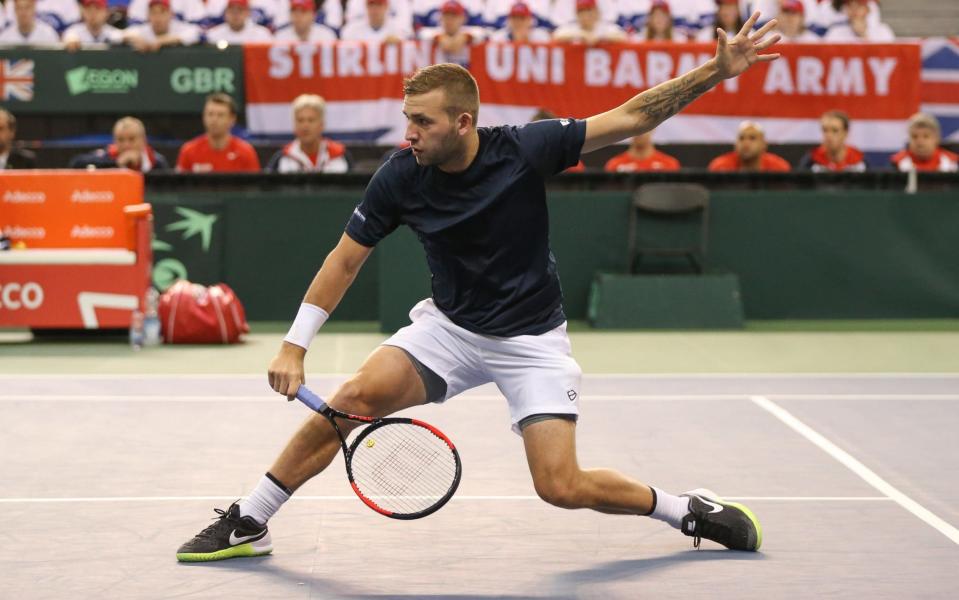Dan Evans to begin comeback from drugs ban at Glasgow Challenger

Dan Evans’s rehabilitation into the tennis tour will begin in just over a week’s time, after the Lawn Tennis Association announced on Monday that they will grant him a wild card into qualifying for the new Glasgow Challenger.
But there is a catch: not only has Evans subjected himself to numerous checks in return, covering everything from his physical fitness to his mental state, but he has also granted the LTA the right to dope-test him at any time.
Evans’s year-long ban for the recreational use of cocaine ends a week on Wednesday, although he has been allowed to train at tennis facilities since February. Coming back with no rankings points to his name, he might normally have been expected to enter a bottom-rung $15,000 Futures event like the one in Jerba, Tunisia, which starts on April 30.
Instead, the LTA’s support means that he has the opportunity to benefit from the extra points and prize-money on offer at the $100,000 Challenger in Scotstoun. A strong run there might mean that Evans can bypass the Futures stage of his comeback entirely.
“We have been having regular contact with Dan,” said the LTA’s head of performance Simon Timson, “and he has shown genuine commitment to getting his tennis career back on track. We have provided a structured programme of sports science and medicine support to help his journey since Dan became eligible again. He has passed our agreed checks over the last six weeks and it is on this basis we have agreed to provide him with a place in the qualifying tournament for the upcoming ATP Challenger event in Scotstoun from April 28.”
Special report: Cheating claims, Christmas McDonald's and throwing matches to catch flights - the reality of pro tennis away from the elite
Some will argue that Evans’s offence should make him ineligible for this sort of LTA support. But then the former LTA chief executive Michael Downey set an awkward precedent last year when he gave Maria Sharapova – who was also returning from a doping ban – a wild card into Birmingham.
There is also the question of what the new Glasgow Challenger is doing on the calendar in the first place. The LTA have spent at least £150,000 on staging this event yet not a single British player appeared on the direct entry list. Andy Murray is thought to have been interested in participating at one stage, but as with all his other planned comeback dates, he has had to stand down owing to the intractable nature of his hip injury. Still, if Scotstoun smooths Evans’s return to mainstream tennis, it will at least have achieved something for the British game.
“I want to thank everyone who has supported me throughout this difficult period,” said Evans in a statement. “I have learned a lot about myself in my time away from the game, a sport that I love very dearly. I am now committed to training hard, resuming my career and getting back to where I was, although appreciate this will take time. If there is a lesson to be learned here it’s that it is every athlete’s responsibility for what they put into their bodies.”

